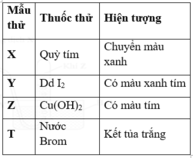Read the following passage and mark the letter A, B, C, or D on your answer sheet to indicate the correct answer to each of the questions from 35 to 42.
Psychologists have debated a long time about whether a child’s upbringing can give it the ability to do outstandingly well. Some think that it is impossible to develop genius and say that it is simply something a person is born with. Others, however, argue that the potential for great achievement can be develop. The truth lies somewhere between these two extremes.
It seems very obvious that being born with the right qualities from gifted parents will increase a child’s ability to do well. However, this ability will be fully realized only with the right upbringing and opportunities. As one psychologist says, “To have a fast car, you need both a good engine and fuel”.
Scientists have recently assessed intelligence, achievement, and ability in 50 sets of identical twins that were separated shortly birth and brought up by different parents. They found that achievement was based on intelligence, and later influenced by the child’s environment.
One case involving very intelligent twins was quoted. One of the twins received a normal upbringing, and performed well. The other twin, however, was brought up by extremely supportive parents and given every
possible opportunity to develop its abilities. That twin, thought starting out with the same degree of intelligence as the other, performed even better.
This case reflects the general principle of intelligence and ability. The more favorable the environment, the more a child’s intelligence and ability are developed. However, there is no link between intelligence and socioeconomic level of a child’s family. In other words, it does not matter how poor or how rich a family is, as this does not affect the intelligence.
Gifted people cannot be created by supportive parents, but they can be developed by them. One professor of music said that outstanding musicians usually started two or three years earlier than ordinary performers, often because their parents had recognized their ability. These musicians then needed at least ten years’ hard work and training in order to reach the level they were capable of attaining.
People who want to have very gifted children are given the following advice: · Marry an intelligent person.
· Allow children to follow their own interests rather than the interests of the parents.
· Start a child’s education early but avoid pushing the child too hard.
· Encourage children to play; for example, playing with musical instrument is essential for a child who wants to become an outstanding musician.
The writer advises that gifted children should be allowed to follow________.
A. Their own interests
B. Their parents’ interests
C. Only their interests in musical instruments
D. Only their interests in computer games










